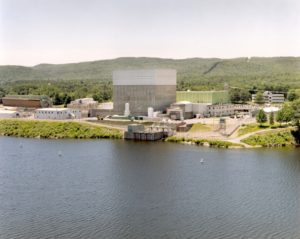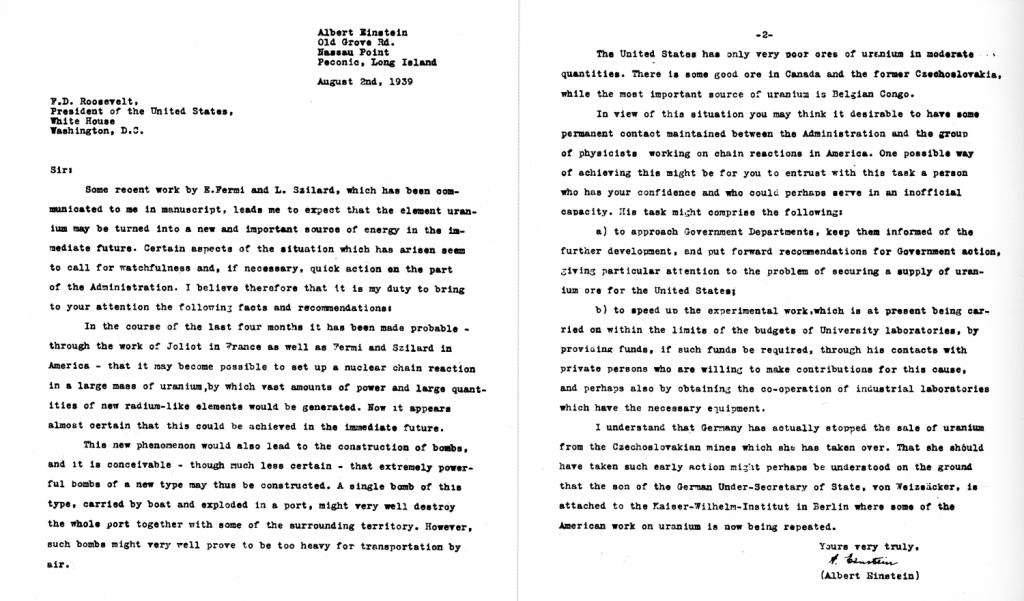North Korea’s steps toward accelerating its nuclear program and testing its missiles has been truly horrifying. So has President Donald Trump’s response, with threats to release “fire and fury” upon North Korea.
Nuclear devastation is one of the gravest threats we face as a species, as has long been pointed out by the likes of linguist and philosopher Noam Chomsky.
 Albert Einstein, one of the incredibly irresponsible scientists who left the world with nuclear capabilities (honestly, I’d trade E=mc² for the chance live in a nuclear-free world in a heartbeat), famously said, “I know not with what weapons World War III will be fought, but World War IV will be fought with sticks and stones.”
Albert Einstein, one of the incredibly irresponsible scientists who left the world with nuclear capabilities (honestly, I’d trade E=mc² for the chance live in a nuclear-free world in a heartbeat), famously said, “I know not with what weapons World War III will be fought, but World War IV will be fought with sticks and stones.”
What Trump’s election should make clear to all of us is that we need to remove the threat of nuclear weapons permanently with a worldwide ban. In the short term, one of the most important policies Congress should pursue is to create a check on Trump’s nuclear capabilities. Astonishingly, no check currently exists save for rogue Army officials who refuse to follow orders or a glitch from the amazingly antiquated 1970s-era 8-inch floppy disk-enabled computer system that nukes are run on.
Congress is meeting to discuss the possibility of curtailing Trump’s nuclear powers. We should demand a vote and swift passage on real legislation banning any president from acting alone with nuclear weapons.
And then there is nuclear energy.

Vermont Yankee Nuclear Power Plant. Wikimedia Commons photo from the U.S. Nuclear Regulatory Commision
With the shutdown of the Vermont Yankee Nuclear plant at the end of 2014, and the predicted closure of Massachusetts’ only remaining nuclear power generating facility — Pilgrim Nuclear Power Station in Plymouth — a combination of economic factors and sustained anti-nuclear activism is finally resulting in much of New England divesting itself of this environmentally harmful and potentially devastating way of generating electricity.
Pro-nuclear advocates will say that carbon has increased since Vermont Yankee’s closure and will increase yet again upon the closure of Pilgrim. That is true. According to a study, New England carbon emissions went up by 2.5 percent in 2015 from 2014 following Vermont Yankee’s closure. Carbon entering the atmosphere is clearly a big problem. Global climate change is happening at a faster rate than even climate scientists had imagined. And yet, there are some things that are worse than carbon.
As devastating as nuclear weapons are, the only two places where nuclear weapons have been used in war — Hiroshima and Nagasaki, Japan — are now habitable by humans. In fact, Hiroshima houses nearly 1.2 million people. Nagasaki has more than 400,000. The site of the accident that took place at the Chernobyl nuclear facility still has been deemed uninhabitable by humans.
 Think about that: a mistake at a nuclear power plant has done more lasting environmental damage than the deliberate use of a nuclear bomb.
Think about that: a mistake at a nuclear power plant has done more lasting environmental damage than the deliberate use of a nuclear bomb.
Mistakes will keep happening, and in addition to that, natural disasters have been shown to have devastating effects, as well. When the March 11, 2011, tsunami struck the Fukushima Daiichi Nuclear Power Plant in Japan, it was devastating to the region and even impacted the 2011 harvest. There are still disputes about what to do with the contaminated water used to cool the melted-down reactors.
What to do with the nuclear waste? We don’t know. That issue was never resolved, and yet the nuclear facilities were built anyway.
Why do we let huge corporations pollute our land with what has proven to be a harmful and deadly way to create electricity? The answer is: we shouldn’t. We should do all we can to speed Pilgrim’s closure, and at the same time, we should be pushing for nuclear disarmament from all countries with nukes.
And yes, that includes us.
Dave Eisenstadter can be reached at deisen@valleyadvocate.com.




